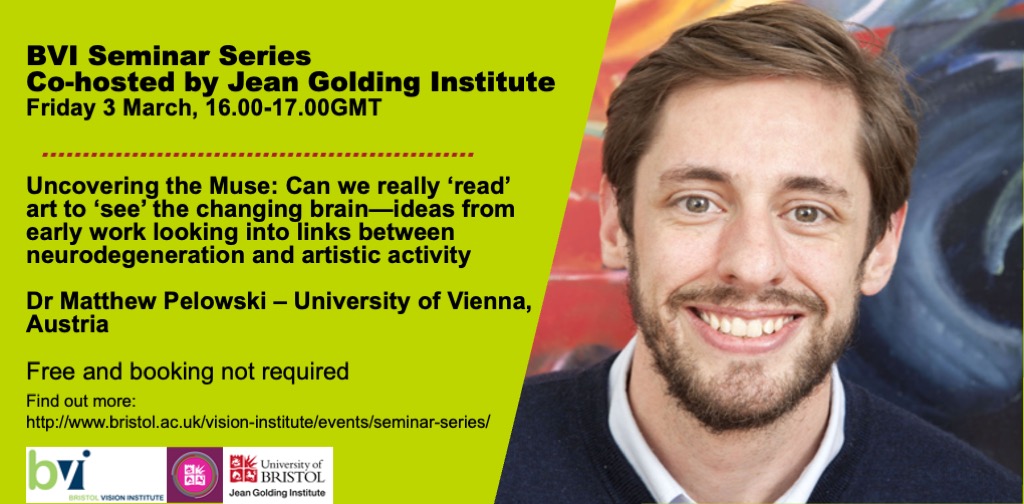written by Corinna Kühnapfel
On March 3, Matthew Pelowski presented his research at a seminar series at the Bristol Vision Institute (BVI), University of Bristol. BVI seminars are free hour-long talks focusing on a particular area of vision research usually with an interdisciplinary flavour. They are delivered by national and international speakers from across the world with a broad appeal across the field of vision.

Abstract
Neurodegenerative brain disorders provide a unique challenge. Although such conditions – Alzheimers’s disease, Frontotemporal dementia, Parkinson’s disease, aphasia, etcetera – have a number of underlying bases, they share a commonality in their relation to brain changes tied to progressive loss of neurons, connectivity, or other functionality in a number of regions and systems. These changes lead to a range of symptoms, from difficulty moving and using one’s body, to subtle changes in emotions; to major, disabling cognitive and behavioral impairments. As such – occurring in tandem with our currently aging world population and the realization that often these disorders may start to germinate years, and up to decades, before they are diagnosed – better understanding of the nature and of these disorders, new means for early detection, or even prevention, are a growing concern for medicine and neuroscience. As a direct result, researchers have redoubled their interest in individuals’ lives and activities. Emerging research has discovered intriguing relations between neurodegeneration and—among other factors—the types of jobs one might pursue,the hobbies we choose, even the nature of our thoughts and cognitive responses. All of which could help to open the ‘black box’ of these disorders and of our human neurobiology.
Please find more information here.
